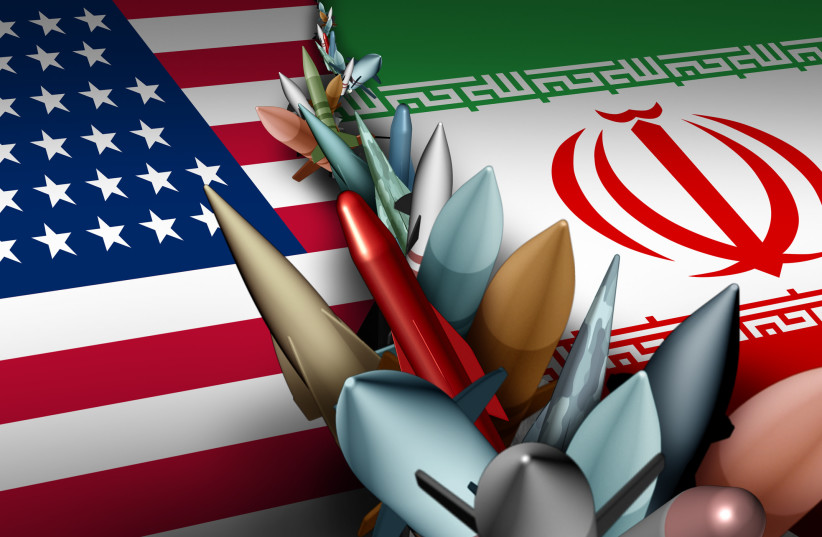Multiple articles in Iranian pro-regime media have been hyping the “Tactical Sayyad” air-defense system over the past two weeks.
Iran claims this system, which is launched from a military-style truck, can detect up to 24 targets at a time at a distance of around 180 km. It can then engage up to 12 of those targets. Iran claims this is an indigenous system, built and developed in Iran. This would be in contrast to other systems that Iran may have developed by modeling them on foreign air-defense missiles, such as S-200s.
“The Tactical Sayyad has a short-range self-protection system in one of its silos that makes the weapon immune to low-altitude threats,” Tasnim News Agency reported in August. “The official noted that the new air-defense system has become more agile since its radars and missile launchers have been merged into a single vehicle.”
There is some lack of clarity about the claimed performance of this system. Various reports claim it can engage six to 12 targets at a range of 120 km. That means the system would detect threats and then track them, prioritizing which to shoot at.
Iran brags about its deterrence
Why does this matter?

Iran is bragging that it is “deterring” other countries in the region and making enemies “more cautious.” Furthermore, Iran’s military leaders “warned Iran is capable of targeting the enemy’s vital and sensitive interests all over the place in case it has ill intentions,” Fars News Agency reported. “Officials assured that areas even far from the bordering regions are monitored by Iran’s air-defense units to confront any possible threat.”
An Iranian general was quoted by pro-regime media as saying: “The powerful Islamic Republic of Iran Air Defense Force is the absolute air-defense power in the region, and this is an undeniable fact. The equipment that we currently use in the country’s air defense is 100% indigenous and is the most equipped and state of the art on the edge of global technology.”
Why is Iran pushing reports about its air defenses basically every day with new reports?
On September 8, Tasnim quoted Adm. Alireza Tangsiri as saying: “Today, the Islamic Republic of Iran’s Army Air Defense Force possesses the most advanced and well-equipped systems, and it is an undeniable fact that our armed forces possess superior air-defense capabilities in the region, and our enemies are well aware of this.”
Is Iran’s latest bragging linked to the expiration of sanctions relating to its missile programs this coming October 18?
This is a possibility. Iran wants to purchase new fighter jets, and it recently unveiled a Yak training aircraft it has apparently received from Russia. A separate October 2020 sanction that related to tanks and jets expired in 2020. Clearly, discussions of missiles are related to possible exports and imports.
The tactical air-defense system isn’t unique or long-range, however, and Iran may want to export it to places such as Syria, Iraq, Lebanon, or elsewhere. On the other hand, Iran may merely want to show it is “deterring” others.
Nevertheless, what’s the overall point of showcasing an air-defense system like this?
The system may be more advanced than an S-200, but its range is similar. The performance of Syrian air-defense crews using S-200s has been dismal over the years. Iran works closely with Syria, and it may be suggesting that it can roll out a better system that could help its partners in the region.
Other than that consideration, Tehran may also be bragging that its defenses can detect drones and other threats at long ranges and neutralize them if need be.
Iran has claimed in the past that it faced drone threats or that it had to counter perceived threats in the Gulf amid tensions with the US. Recently, Iran also threatened US forces in Syria.
